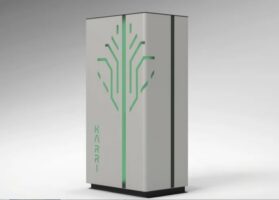Labor backbencher Joel Fitzgibbon has called on his party to effectively adopt the climate policies of the Morrison government, claiming that the best way for Labor to win the next election is to capitulate in the battle over climate policy.
In a speech to the conservative Sydney Institute on Wednesday, titled ‘the right path to a Labor victory’, the former Labor frontbencher effectively endorsed the Morrison government’s ‘technology no taxes’ rhetoric, and said that there was no role for opposition parties in setting interim emissions reduction targets.
It would represent a stunning surrender in a more than decade long battle over Australian climate and energy policy, particularly from a major party that has a primary role to serve as the country’s ‘opposition’ party.
“Scott Morrison certainly doesn’t want an end to the climate wars, they’ve helped the Coalition win the last three elections,” Fitzgibbon said.
“For that reason alone, Labor should commit to whatever medium-term targets Scott Morrison commits the Australian people to. We should also re-commit to net zero emissions by 2050 and promise a Labor Government to accelerating the pace of the innovation needed to achieve the mid-century goal.”
Fitzgibbon argued that the Labor party should not be looking to set its own interim targets, effectively calling for the Labor party to adopt and accept the current 2030 target set by the Morrison government.
“Medium-term targets should not be set by opposition parties. From the opposition benches, politicians have no capacity to determine what rate of achievement might be possible, without doing harm to our economy and local jobs,” Fitzgibbon told the Sydney Institute.
“But it should be a commitment guided by departmental and agency advice and one made on behalf of the Australian Government and the Australian people, not one by any one political party.”
“Once set, Australia’s target should remain our target for all of the commitment period, regardless of any change of government. That means that on winning government, a successful political party should not change the medium-term target prior to the end of the commitment period.”
The Morrison government’s climate policies have received their own share of criticisms, with Australia left in the diplomatic freezer and denied a speaking role at a global Climate Ambition Summit, after refusing to make any meaningful improvements to Australia’s climate efforts, while major trading partners commit to stronger targets.
Labor took a commitment to reduce emissions by 45 per cent by 2030 to the 2019 federal election, but has since abandoned that target following its unexpected loss, and has yet to specify any new interim emissions target.
Fitzgibbon resigned from the Labor shadow cabinet in November, having previously held the shadow agriculture and resources portfolios, citing irreconcilable differences with the leadership of Anthony Albanese and the party’s current climate change policies.
The now backbencher represents the coal-heavy electorate of Hunter, home to some of New South Wales’ largest coal projects and which provides Fitzgibbon with both a personal and ideological interest in seeing Labor soften its stance on phasing out fossil fuels.
Fitzgibbon came close to losing the seat at the 2019 federal election, having suffered a massive 14.2 per cent fall in his personal vote, and attributed the fall to an apparent refusal to promote pro-coal policies during the election campaign.
Fitzgibbon told the Sydney Institute that Labor should effectively disengage from the fight over climate change policy, allowing the incumbent Morrison government to set agenda, with regards to medium term policies, while remaining committed to a long-term zero emissions target. Fitzgibbon argued that Labor should abandon any policies that involve a price on carbon emissions, and suggested that the party should mirror the technology focus of the Morrison government.
“Promoting innovation takes more effort and thinking than does simply implementing a carbon tax, but the technology path will deliver greater benefits to the economy and offer more reward, both in outcome and political terms. It also offers greater certainty and security for working families,” Fitzgibbon said.
“Carbon taxes – or carbon constraints to use the less scary language – are a 20th century solution to a 21st century challenge.”
Fitzgibbon reserved some of this harshest criticisms for Labor’s current climate change and energy spokesperson, Mark Butler, comparing some of Butler’s critiques of the Morrison government’s policies to those of the Australian Greens, describing them as ‘dishonest’ and ‘delusional’.
“I heard Labor’s Climate Change spokesman Mark Butler claim last week that on Scott Morrison’s current policy trajectory, Australia would achieve net zero emissions in 146 years’ time. Not 140 years, not 145 years, but exactly 146 years,” Fitzgibbon said.
“For the punters, this claim is no more believable than Scott Morrison’s claim he is on track to meet his current medium-term target. And it’s no more believable than anything the Greens have to say on the issue, or the National Party for that matter.”
“This is the problem with the climate change debate, no one is being honest with the Australian people. That’s because honesty would come at the cost of perceived political advantage. I use the word “perceived” advisedly, but “delusional” may be more accurate.”
The speech adds to pressure on Butler, just days out from an expected reshuffle of the Albanese shadow ministry, that is being applied by Labor’s right faction to see Butler moved out of the climate and energy portfolios.
Prime minister Scott Morrison is expected to reshuffle his own ministries before Christmas, to both fill a number of end-of-year vacancies, as well as taking the opportunity to make adjustments to his ministerial team. Albanese is expected to reveal his own reshuffle shortly afterwards.
Labor climate and energy spokesperson Mark Butler has been contacted for comment.







